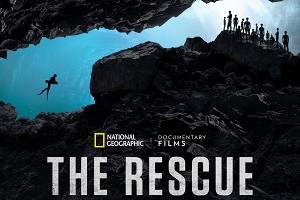
How often have you heard your climbing friends complain of the attitude of insurance companies, the ignorance of their staff and the premium they will impose just because they climb? And how many times have you tried to explain what 'sport climbing' actually is, or why you may not use protection when you go bouldering? Indeed what does an insurance underwriter consider to be protection?
For many years, insurance underwriters have considered climbers to be a peculiar breed of people enjoying an absurd activity with no appreciation of danger and having little regard for their own safety. Hence they increase premiums of life insurance in order to pay for an 'unquantifiable risk'.
Someone takes out life insurance to provide for their family in the event of their death and it gives peace of mind knowing that their loved ones will be financially secure. It is essential that the proper advice is sought from a specialist. It is no good taking out life cover and not disclosing that you go climbing. The insurance company is perfectly justified in refusing a claim even if you die from something totally unrelated to climbing.
The average insurance adviser will not be a climber or know the difference between severe and E4. He will probably not know where Denali is or what bolt clipping is. And what of deep water soloing?
Often advisers fail to correctly inform insurance companies of the true extent of a client's outdoor activity, not realising the relevance of certain information. Risks need to be clearly identified and full disclosure made.
There are three basic forms of financial protection:
- Mortgage Protection - This is designed to pay off the balance of your repayment mortgage should you die or suffer a critical illness.
- Level Term Assurance - A policy which would protect your family in the event of your death or critical illness. It could provide a lump sum, or monthly income.
These plans may also be used for business as key man protection.
- Income Protection - This policy provides an income in the event of a policyholder not being able to work due to illness and accident. It is paid out until your selected retirement date.
Not only should care be taken about full disclosure but it is also important to ensure that you take out the policy which you intended to. Do not be confused over benefits of terminal illness, critical illness and serious illness.
- Terminal Illness - This benefit is usually included at no extra cost in a life insurance policy and would normally pay out when the policy holder has a life expectancy of less than 12 months.
- Critical Illness - This benefit will provide a lump sum upon the diagnosis of a specified illness within the contract such as cancer or heart attack.
- Serious Illness - Serious illness policies will pay out as with critical illness but will cover more illnesses, and be severity based.
- Total Permanent Disability - Provides a lump sum if the policy holder becomes totally and permanently disabled. This contract could be based upon not being able to perform certain acts of daily living or not being able to carry out one's own, suited, or any occupation.
- Personal Accident & Sickness - This should not be confused with an income protection policy. Personal Accident policies normally pay out for a period of one or two years and are annual contracts. Income protection policies provide a benefit until a chosen retirement date i.e. 50/55/60/65 etc. It is based upon a proportion of your income.
It is important that you apply for cover which is appropriate for you. Financial Advisers have a duty to offer best advice and should recommend a suitable policy. When it comes to offering best advice, which takes your climbing into consideration, then clearly you should contact a specialist.
David Hallam is Director of Summit Financial Services.















Comments